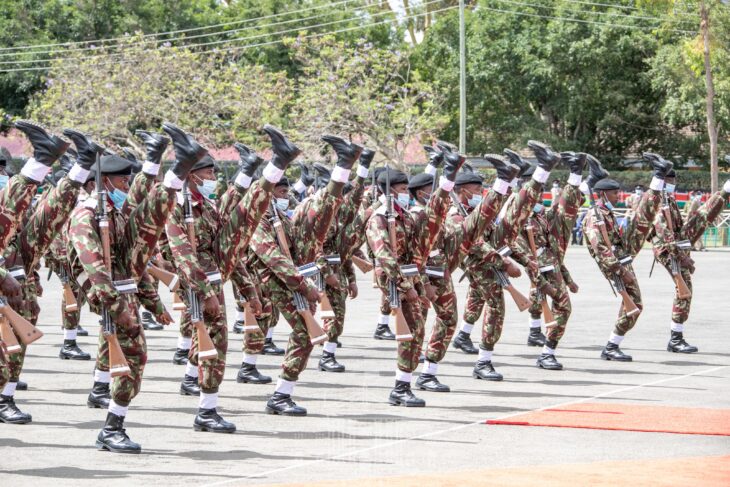NAIROBI, Kenya, Jan 27- A recent survey by the National Police Service Commission shows that at least 12 to 13 percent of police officers have mental-related issues.
With the figures, NPSC chief executive Joseph Onyango Wednesday said measures are being put in place, to ensure the worrying trend is reversed.
“The mental cases out of the recent assessment is almost trending towards the figure of 12 to 13 percent of the total population of the officers. It’s trending toward the global figures,” Onyango said.
He was speaking on Wednesday, during a one-day training for senior Administration Police Service officers, at the Chiromo Group of Hospital in Nairobi.
At least 60 police officers participated in the training.
As a way to address the persisting triggers within the service for the disease, Deputy Inspector General of Police of APS Noor Gabow said a myriad of measures had been adopted, including improvement of the working conditions and opening up the communication channels for officers to channel their grievances.
“Check on triggers and act immediately. Bring him or her to a hospital or allow him or her to seek medical services,” he directed the 60 senior officers.
Some of the identified contributing factors, the police boss said include tough work, financial issues, marriage wrangles, transfers, working far from friends, and exposure to stresses.
“A police officer is supposed to know everything which affects their status,” he said.
He said no officer in the National Police Service should suffer mental health issues since the Government has provided a Comprehensive Medical Cover that should cater to such a need among other health issues that affect the wellbeing of police officers.
Lauding Dr. Frank Njenga for the establishment of “a world-class mental health facility”, Gabow urged commanders to ensure that they make use of the facility by referring needy cases amongst police officers.
He reiterated the fact that “we can only serve our country effectively when our officers have the right frame of mind and a facilitative environment which addresses the totality of their operational needs.”
The Chiromo Hospital Group and the National Police Service are set to partner in a capacity-building program for Police Counsellors who upon completion of training will be deployed to all the 47 Counties.
“Police officers are normal people out in abnormal environments. They are out and on constant vigilance,” Dr. Njenga, who is the owner of Chiromo Hospital Group said.
Dr. Njenga said the mental health issues were a bigger challenger for all Kenyans.
“We currently allocate 15 percent towards the management of the menace but we are pushing a budget to ensure the money is increased to 250 per person per annum as required by the World Health Organisation,” he said.
He warned that the relapse rate was high, at 60 percent, and there was a need to offer psychosocial support to the recovering officers.
“Failure rates may be due to lack of aftercare. These officers need a lot of psychosocial support in the office, workplace, and even within the family. Let us reach out to them,” he said.
A task force on mental health led by Dr. Njenga in 2020 recommended that mental illness be declared a national emergency of epidemic proportions, to prioritise mental health as a priority public health and socioeconomic agenda.
The Taskforce also recommended the establishment of a mental health commission and happiness, to advise, coordinate and continuously monitor the status of mental health, and report on the annual National Happiness Index.
The key findings of the Taskforce indicate that Kenya has a high burden of mental illness due to ill health, psychosocial disability, and premature mortality with huge gaps in access to care.
The majority of Kenyans associate mental health and mental illness with negative narratives leading to a low focus on the importance and benefits of mental health and wellbeing, the report says.
In Kenya, it is estimated that one in every 10 people suffer from a common mental disorder. The number increases to one in every four people among patients attending routine outpatient services.
Depression and anxiety disorders are the leading mental illnesses diagnosed in Kenya, followed by substance use disorders.
Among the different types of substances, alcohol contributes to the largest burden of substance use-related illnesses in Kenya.
Of great concern, alcohol abuse is most prevalent in the 18-29-year-old age group.
Human Rights groups working on police reforms have been calling on more effort to address the mental issues with the police service following tens of police killings.
Want to send us a story? Contact Shahidi News Tel: +254115512797 (Mobile & WhatsApp)


